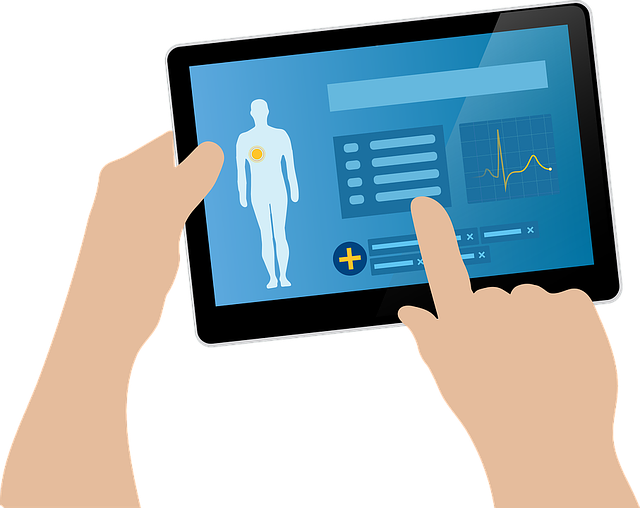
The causes, symptoms, and treatment of cancer can be enormously complex. Upon being diagnosed, people are often thrust into a medical world that is completely unknown to them. Some find themselves in the position of having to make complicated treatment choices in a short amount of time. Given that research indicates that more than one-third of U.S. adults have limited health literacy, that prospect can be overwhelming.1
Of course, physicians and nurses counsel patients and explain their options, but a recently diagnosed patient is often not in the best place to absorb complex medical information and make life-changing decisions. Clinicians, accustomed to medical jargon, may assume that patients possess a baseline medical knowledge that they do not. Patients and caregivers may be hesitant to speak up and request that the provider explain terminology or slow down, leaving them confused. This can compound the anxiety that patients are already feeling, making it less likely that they will participate in their own care.
To address this, the National Cancer Policy Forum and the Roundtable on Health Literacy of the National Academies of Sciences, Engineering, and Medicine hosted a workshop in July 2019 to generate strategies to support patients with varying levels of health literacy. The workshop participants defined health literacy as “the degree to which individuals can access, comprehend, and use information to make healthcare decisions.”
The workshop convened a panel of patients, patient advocates, clinicians, researchers, and representatives from healthcare organizations, academic medical centers, insurers, and federal agencies. Speakers discussed the barriers to effective communication in cancer care, specifically when trying to meet diverse health literacy needs and ensure culturally competent communication.
In February 2020, the National Academies published “Health Literacy and Communication Strategies in Oncology: Proceedings of a Workshop,” summarizing the participants’ observations and recommendations and proposing strategies for improvement in multiple areas. Among the recommendations:
Promote more effective communication between providers and patients.
- Implement communication training programs for oncology clinicians that include strategies for improving listening skills, promoting open dialogue, and tailoring information to match patients’ communication preferences.
- Ensure clinicians clearly articulate the distinctions and components of palliative care and hospice care and address patients’ and families’ questions about these care options.
- Provide complex health information to patients clearly and concisely, even if simplification reduces precision.
- Facilitate open discussion of cancer treatment costs with patients and families by offering training to clinicians and developing patient-centered tools to build health insurance literacy.
Counter misinformation in the public sphere about cancer treatment.
- Disseminate accessible, engaging, and actionable public health information about cancer prevention that uses effective design principles.
- Create a national council or network to engage diverse stakeholders in developing guidelines, strategies, and tools for communicating evidence-based information about cancer to patients, families, and communities.
- Partner with social media platforms and use social media to communicate cancer information to the public and respond to misinformation.
- Build trust with members of the public and patients by actively engaging them in conversations about health and by communicating health information clearly and in plain language.
Meet the health literacy needs of diverse populations and promote culturally competent communication.
- Incorporate diverse patient voices in research design and dissemination.
- Develop evidence-based frameworks for integrating culture in oncology research and care.
- Disseminate knowledge about the effects of health literacy on health outcomes and further strengthen the evidence base through research that engages underrepresented communities.
- Adapt patient-clinician communication to meet the cultural and linguistic preferences of patients and their family members.
Promote health literacy within healthcare organizations.
- Regularly assess patients’ health literacy needs to identify opportunities to tailor communication and build health literacy skills.
- Implement patient navigation programs to address barriers to care, including the potential for reduced access due to health literacy limitations.
- Train all healthcare organization employees in best practices for communication and strategies to address the health literacy needs of patients and families.
- Implement policies within healthcare organizations to support patient self-management, particularly during key transitions in cancer care.
To help cancer programs evaluate and promote health literacy within their organizations, ACCC has developed a health literacy gap assessment tool. By completing the assessment, cancer programs can identify opportunities for advancing health literacy and subsequently enhancing patient care. ACCC has also created a list of curated resources for programs to use post-assessment.
For more information on the proceedings of the National Academies Workshop on Health Literacy and Communication Strategies in Oncology—including information on leveraging media for cancer education and prevention, responding to the specific needs of adolescents and young adults (AYAs) with cancer, promoting continuing care through survivorship, and teaching patients self-management—refer to the full text.
(Thank you Association of Community Cancer Centers for your generous sharing of this content. To view the post at the ACCC site, please click here.)
________________________________________________
- Hersh L, Salzman B, Snyderman D. Health Literacy in Primary Care Practice. Am Fam Physician. 2015 Jul 15;92(2):118-124.





